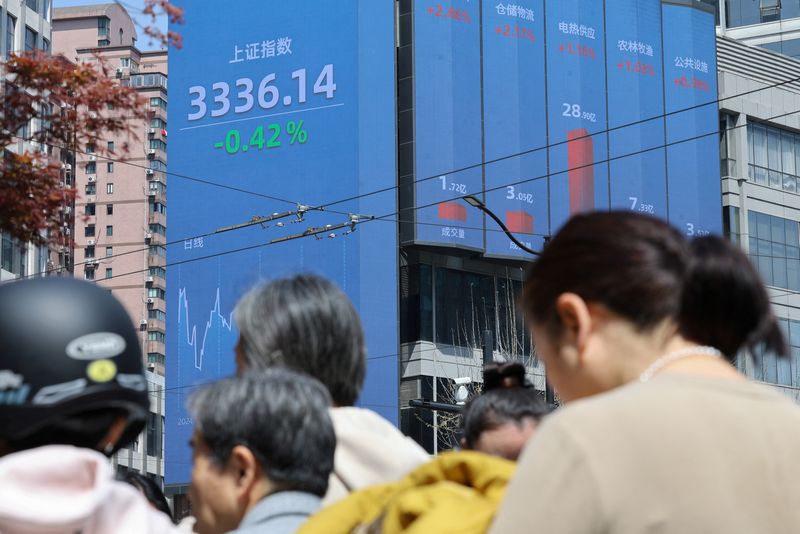Foreign investors are eyeing a significant return to China’s stock markets, marking a notable shift from three years of retrenchment when many deemed these markets uninvestable. This renewed interest stems from a confluence of factors, including promising technological advancements and a heightened desire for diversification away from U.S. assets.
In 2023, China made strides in the fields of artificial intelligence, semiconductor production, and innovative pharmaceuticals, boosting investor confidence. The ongoing Sino-U.S. trade tensions and American tech export restrictions have not stymied the pace of innovation in China, the world’s second-largest economy. The recent truce in U.S.-China tariffs, coupled with easing domestic monetary policies, has further enhanced market sentiment. As a result, the Shanghai Composite index reached a decade high last week, with Hong Kong stocks also climbing to a four-year peak.
The shift in sentiment among foreign investors could potentially bolster the current market rally, which has so far been largely dominated by local participants. Industry experts, such as Brett Barna, a former hedge fund manager turned family-office manager, have noted that some foreign investors are already in China, enticed by the ongoing bull market and the pursuit of diversification from saturated U.S. markets. Barna is in the process of establishing an investment platform to facilitate U.S. and European investments in China’s capital markets.
Data reflects this growing eagerness to tap into China’s $19 trillion stock market, including Hong Kong. August 2023 saw the largest monthly influx of capital into Chinese stocks by global hedge funds in six months, according to Morgan Stanley, although exact figures were not disclosed. Furthermore, Morningstar data indicates a decline in the launch of emerging market equity funds outside of China, from 21 in 2024 to only eight in 2025, pointing to a significant slowdown in demand for non-China emerging market investments.
Zheng Yucheng, chief investment officer of Allianz Global Investors’ China fund unit, remarked on the changing perceptions around China. “A year ago, people wanted to exclude China from indices. Now, China is seen as a standalone asset class,” he stated.
Anecdotal evidence reinforces this trend. Polar Capital, a London-based asset manager with $20 billion under management, shifted to a positive view on China in late 2024, increasing its allocation to more than 30% from the low 20% range within its emerging market portfolio. Their recent conference on China attracted over double the number of participants compared to 2023, reflecting a resurgence of interest. Fund manager Jerry Wu credited the shift to breakthroughs by Chinese firms in AI, such as DeepSeek’s cutting-edge AI model, which has prompted a revaluation of innovative assets.
Additionally, Cambridge Associates has reported a spike in client interest regarding China-focused investments, with approximately 30 inquiries this year compared to few requests the previous year. Many foreign investors from outside Asia are planning trips to China and Hong Kong later in the year to explore potential investment options.
However, challenges remain. China’s broader economy continues to show signs of fragility, as evidenced by disappointing factory output and retail sales data from August. Foreign direct investment saw a 13.2% decline in the first five months of 2025 compared to the same period last year, prompting China to implement new measures aimed at reversing this downward trend.
Despite these ongoing challenges, the market is entering a “rerating” phase. Investors are increasingly focused on China’s long-term competitiveness, with some analysts indicating that while foreign capital is interested, it has yet to translate into substantial long-term investments. As CLSA’s chief equity strategist noted, deflationary pressures are hindering the likelihood of an overall market overweight position. The potential for the current AI boom to positively impact the broader economy remains critical for sustaining the market rally beyond 2025.
Overall, while foreign investors are tentatively considering a return to China, they remain cautious, closely monitoring developments and awaiting stable signs of economic improvement.







